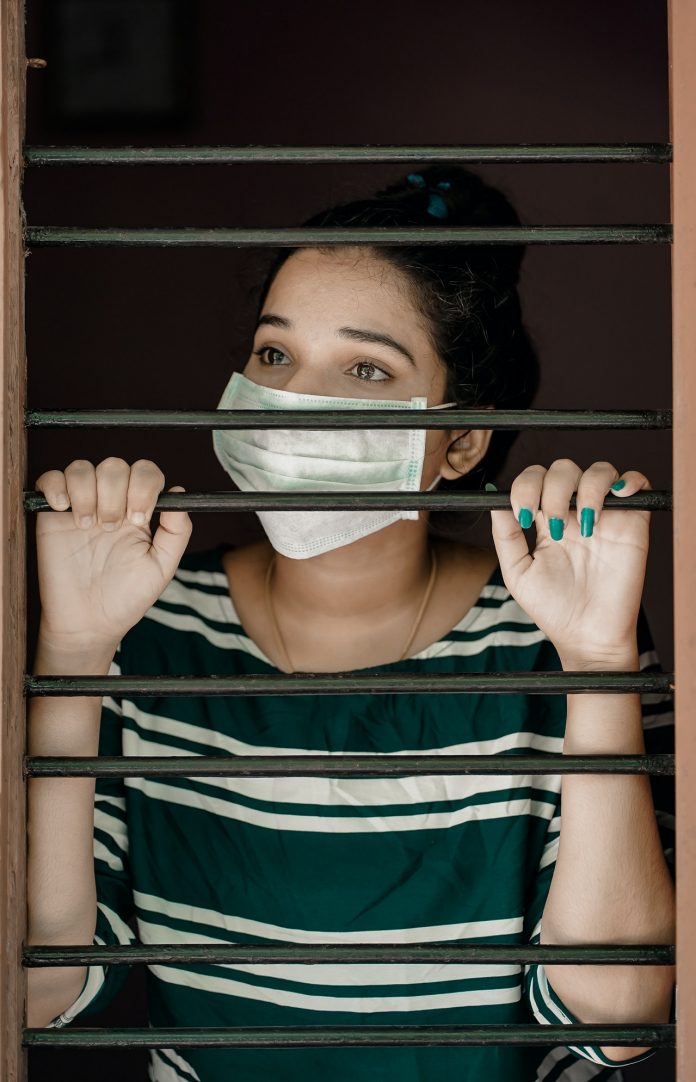Mental wellbeing of youth worsened significantly during the pandemic, so we can suspect it is the same or even worse for the beneficiaries of our project StayOn (NEETs: not in employment, education or training young people), although we do not have much data.
Many national studies report an increase in the rates of anxiety, sleep disorders and depressive symptoms as well as diminished productivity among the adolescents and university students across European countries since the beginning of the pandemic. One survey (Eurofound, 2020) also shows that 18‑34 year‑olds in the EU were the age group most likely to report feeling lonely “more than half of the time”, “most of the time” or “all of the time” in both April/May 2020 and June/July 2020. The worrying mental health trends result from many factors: interruptions of their daily life and activities which also means loss of daily routine; absence of in-person contact with peers and subsequently a sense of belonging to a community, for too many even a loss of a safe space; feelings of helplessness and uncertainty about the future; fear of or actual sickness or death of a family member due to the virus; and last but not least unemployment and loss of income. We may add that when it comes to our youth’s mental wellbeing, some suggest the pandemic only highlighted an underlying problem society did not give enough attention to before. This is especially true for young people belonging to more vulnerable subgroups.
While we have some data for youth mental health in general, it is, however, very hard to keep statistics or monitor those outside of social systems, whether of education or employment. Nonetheless, all the factors mentioned above, from social isolation, lack of individual control over the situation, to loss of emotional and financial security, also apply to young people who are not currently employed nor in education or training process. We could even suggest the consequences could be more significant combined with their already insecure life situation. The pandemic resulted for many in a quasi-total loss of community and regular physical contact, which means further seclusion, solitude and precarity. We must also not overlook the disruptions in access to mental health services and other support systems, although they were partly substituted by online platforms and hotlines. For young people, educational institutions often not only represent their primary source of community, but also point of access to mental health services. For young people who are not part of these institutions, identifying mental health issues and addressing them is consequently harder even in less challenging times. Today, we can presume their mental health issues in better part went unreported and therefore unaddressed.
Additionally, there is no doubt the inequalities increased during the pandemic due to social disruptions and reduced social opportunities. There is an elevated risk of young people leaving school early or not being able to find the training, necessary to make the transition from school to work, as the internships and temporary work were suspended in some companies. Not to forget, young people are also more likely to lose their jobs during a crisis, considering the kind of jobs and positions they often hold as well as their shorter tenure. Those in search of employment are confronted with less quality jobs and very scarce openings which puts additional pressure on them and can be easily demotivating, the longer the process takes. NEETs represent a disadvantaged social group and we can observe they are as such even more vulnerable to social crisis. The current situation interrupted the present projects and made it hard to imagine future ones. They are in greater risk of not being able to create their own network and not learn as much as they could with gaining actual experiences. The resulting financial struggles are another aspect of stress young people face as well as another obstacle on the path to realisation of their future plans and their desired independence.
As we can see, the impact of COVID‑19 on labour markets disproportionately affects young people, as suggested by the OECD: »Unemployment is a major risk factor for poor mental health: supporting young people in finding, keeping and staying in work must be an economic, social, and public health policy priority.« The already substantial importance of financing projects that directly address those excluded from traditional systems has grown further during the pandemic. They bear a heavier burden than some other social groups and are at the same time more likely to be left behind during a crisis. Youth empowerment projects like StayOn are vital to ensure youth’s access to opportunities, benefits, services and jobs, especially in the rural areas where the risk of social exclusion is higher. Through the train-the-coach program we will equip the future rural change agents to positively affect 1450 young NEETs in 5 different countries. We will provide these young people with the necessary skills for the labour market, better perspective of the future and hopefully unlock their potential and thus reinsert them into their communities with meaning and purpose. Just as importantly, though, considering the many issues they are confronted with today, we will also offer them the much-needed individual support and coaching in navigating the many challenges they face, and a place of positive social interactions to at least partly offset the negative social and mental effects of the COVID-19 pandemic. All this will, hopefully, directly confront their feelings of isolation, solitude, helplessness, uncertainty and both emotional and financial insecurity.
It is the mission of the project to develop adequate, innovative and caring support to the young people excluded from formal support systems to lift their potential and through this improve their local rural communities.
BB Consulting team


